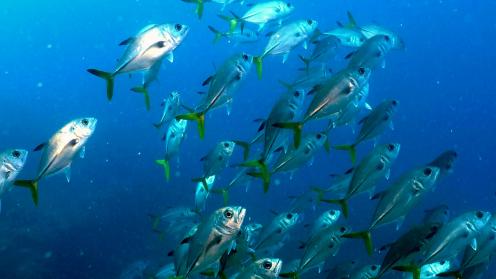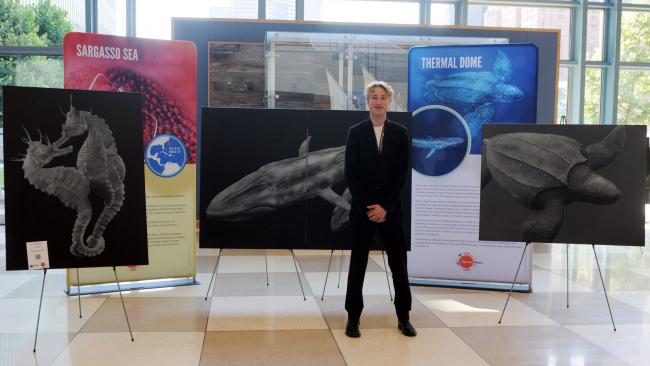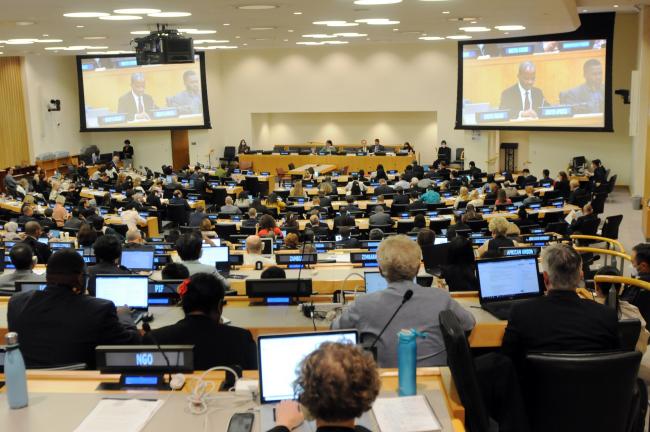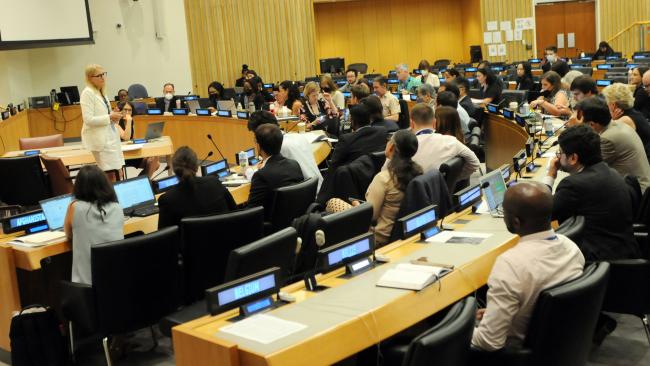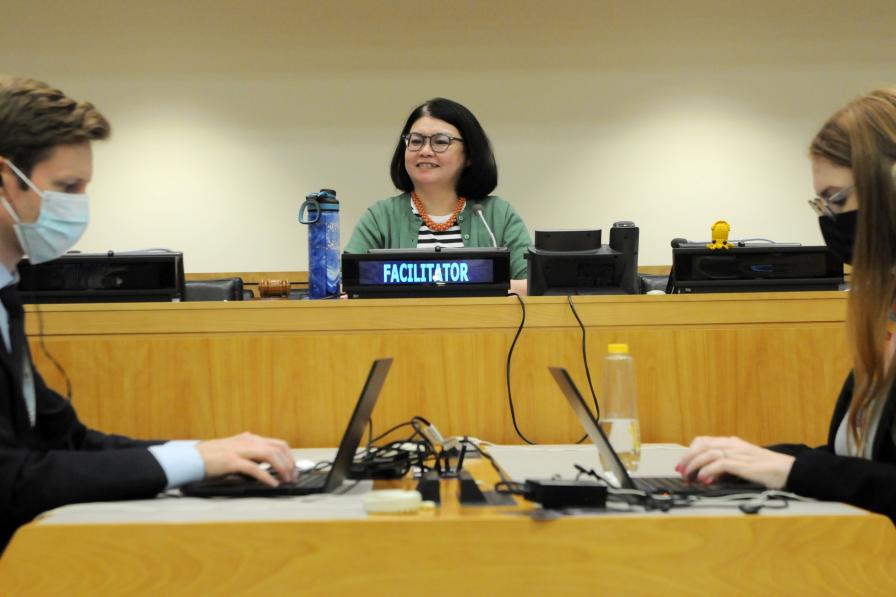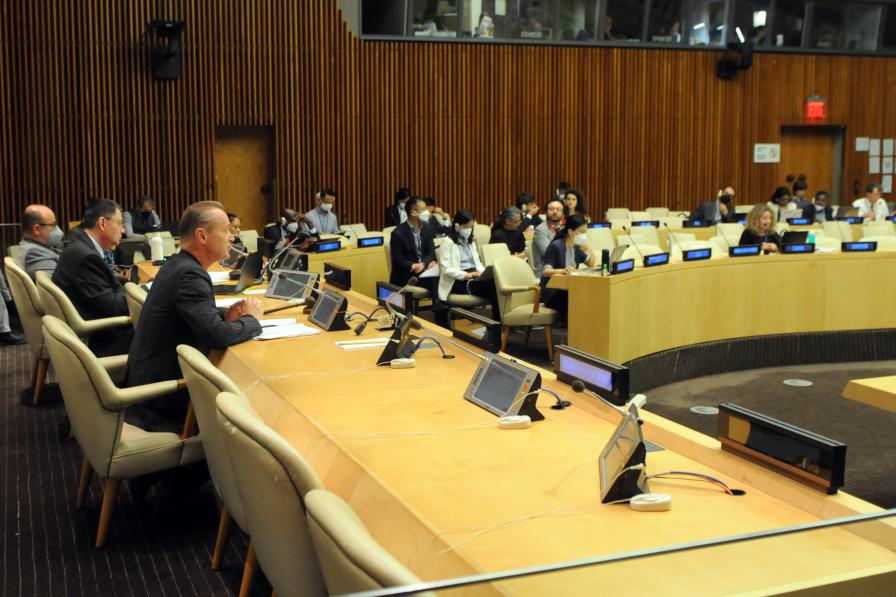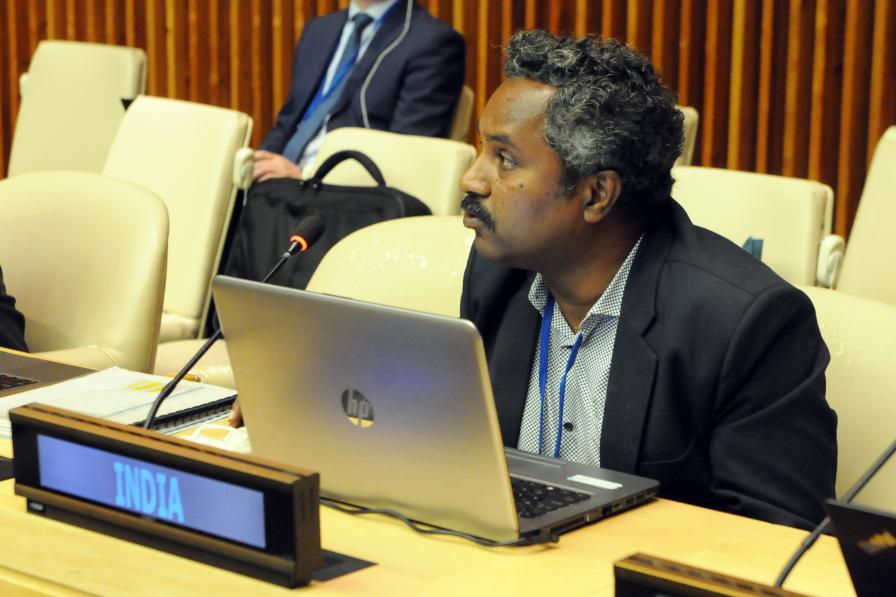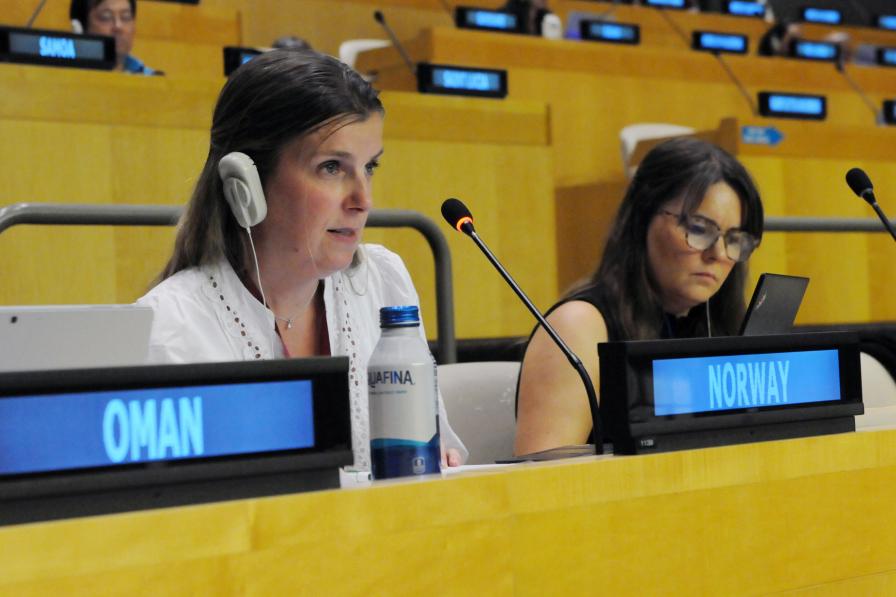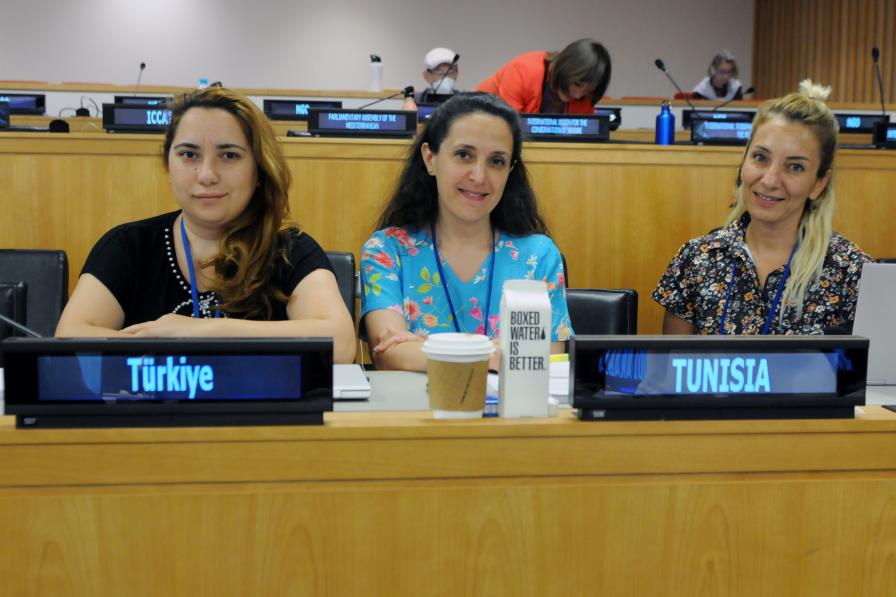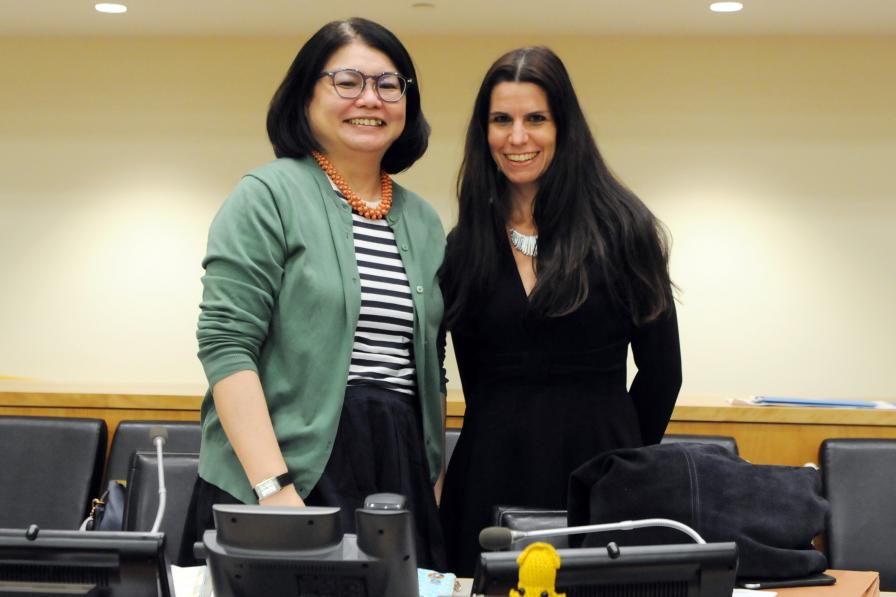At the close of the first week, delegates at the fifth session of the intergovernmental conference (IGC-5) on the conservation and sustainable use of marine biological diversity of areas beyond national jurisdiction (BBNJ) worked right through the day, addressing outstanding draft treaty provisions on:
- marine genetic resources (MGRs), including questions on the sharing of benefits;
- environmental impact assessments (EIAs);
- measures such as area-based management tools (ABMTs), including marine protected areas (MPAs);
- capacity building and the transfer of marine technology (CB&TT); and
- cross-cutting issues, including general provisions, institutional arrangements and final provisions.
Want to dive deeper? Read the full Earth Negotiations Bulletin daily report.
In their discussions on MGRs, delegates addressed objectives of that part, including a new proposal on the promotion of scientific understanding of MGRs in areas beyond national jurisdiction. They also considered a new proposal that the objectives are to contribute to the realization of a just and equitable international economic order.
On ABMTs, delegates addressed provisions relating to implementation, and monitoring and review. On EIAs, they considered provisions related to monitoring, reporting, review of authorized activities, strategic environmental assessments, and guidance to be developed by the scientific and technical body (STB). In their discussions on CB&TT, delegations worked on provisions related to cooperation, objectives, and types of CB&TT.
On cross-cutting issues, delegates opened discussions on financial resources and mechanism, focusing on, among others, the provision addressing funding. To clarify confusion over the potential role of the Global Environment Facility (GEF) in relation to a proposed special fund under the new agreement, a representative from the Facility underlined that the GEF does not finance other funds. IGC President Rena Lee will lead small group discussions to make headway on funding during Week 2.
In the late afternoon, IGC President Lee convened a stock-taking plenary. The facilitators from the informal-informals presented progress reports of their work. Small groups also reported their progress on sticky provisions in the draft treaty text.
In the ensuing discussion, the G-77/China pointed to challenges with the working method, noting the proliferation of small groups. The African Group lamented that the proliferation of small working groups could distract from the negotiations, calling for a clear mandate and timetable for these groups. The EU reiterated their commitment to inclusiveness, noting that work in small groups is “by no means final.” Mexico proposed that a “legal scrubbing group” could convene in parallel to formal negotiations. China prioritized a strong agreement over a timely conclusion of the negotiation process, underscoring that nothing is decided until everything is agreed.
IGC President Lee acknowledged the concerns on the proliferation of small groups, noting that they may be a “necessary inconvenience.” On the way forward, she outlined her intention to produce a “refreshed text” over the weekend to be issued on Sunday, 21 August, with some provisions reflecting a possible way forward. She requested delegations’ flexibility on the programme of work for the rest of the meeting, with informal informals scheduled to address outstanding issues. She announced that she would conduct states-only “President’s Consultations” to make progress on the more difficult issues, which will be held throughout Week 2. She noted further consultations with the Bureau on the possible establishment of a “scrub committee.”
All ENB photos are free to use with attribution. For photos from BBNJ, please use the following attribution: Photo by IISD/ENB | Diego Noguera.
To receive free coverage of global environmental events delivered to your inbox, subscribe to the ENB Update newsletter.
Around the Venue

Camille Jean Pierre Manel, Executive Secretary, International Commission for the Conservation of Atlantic Tunas (ICCAT), and Ahmad Alkhalailah, Jordan
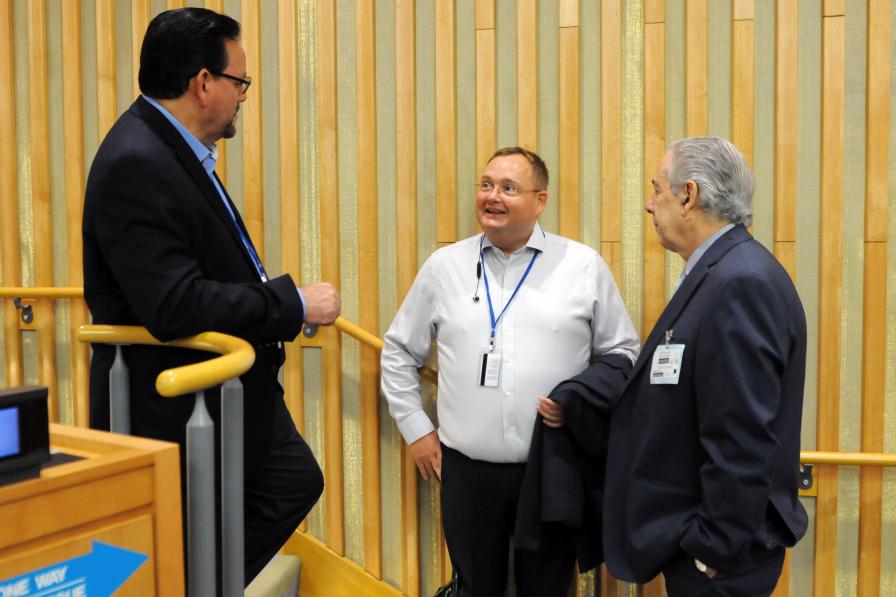
L-R: Bernal Chavarria, Central American Integration System (SICA); Stefán Ásmundsson, Iceland; and Carlos Mazal, Group of Experts on Fisheries of Latin America

Megan O’Toole, International Fund for Animal Welfare (IFAW), and Sebastian Nicholls, The Pew Charitable Trusts

L-R: Eden Charles, Moderator of the High Seas Dialogue on BBNJ; IGC President Rena Lee, Singapore; and Carlos Duarte, Brazil

L-R: Peter Davies, Secretariat of the Pacific Regional Environment Programme (SPREP); Peni Suveinakama, Pacific Islands Forum (PIF); and Epeli Maisema, Fiji
